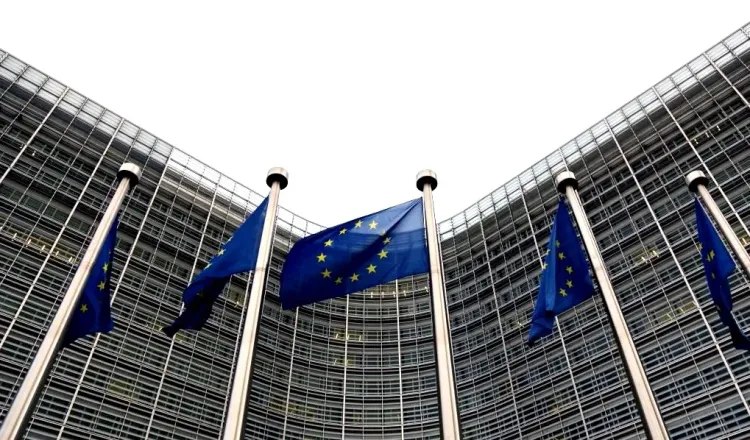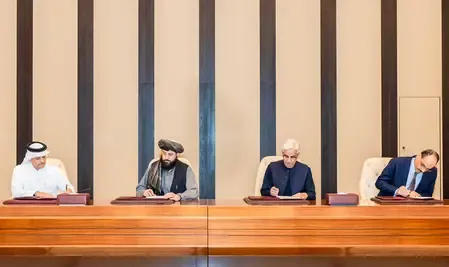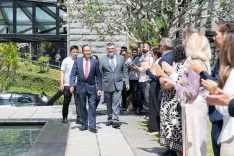Are EU and UAE Negotiating a New Free Trade Agreement?

Synopsis
Key Takeaways
- EU and UAE initiate FTA negotiations.
- Focus on reducing tariffs and enhancing services.
- Exploring trade in renewable energy and digital technologies.
- Strengthening ties with GCC member states.
- Addressing US tariff pressures through diversification.
Brussels, May 29 (NationPress) The European Union (EU) and the United Arab Emirates (UAE) have officially commenced discussions for a bilateral Free Trade Agreement (FTA), which could represent a significant advance towards the EU's inaugural extensive trade pact in the Gulf region, as reported by the European Commission.
This effort also seeks to further enhance the EU's international trade framework, which currently includes 44 agreements with 76 nations, according to statements made by the Commission on Wednesday.
In a recent press release, Commissioner for Trade and Economic Security Maros Sefcovic and UAE Minister of State for Foreign Trade Thani bin Ahmed Al Zeyoudi convened in Dubai to reaffirm their mutual vision for the agreement and to establish a strategic roadmap, with significant discussions anticipated to commence as early as June.
The initial meetings of the negotiating teams will concentrate on lowering tariffs on goods and facilitating services, as well as enhancing digital trade and investment flows, according to reports from the Xinhua news agency.
Negotiations will also investigate methods to enhance trade in crucial sectors such as renewable energy, green hydrogen, and essential raw materials.
Sefcovic underlined that a bilateral FTA would unlock immense business prospects for both European and Emirati companies, while simultaneously strengthening the EU's regional engagement with Gulf Cooperation Council (GCC) member states.
European Commission President Ursula von der Leyen praised the initiation of talks as a noteworthy milestone, emphasizing that the agreement would enhance EU-Gulf relations, generate new opportunities for European businesses, and fortify collaboration in critical areas such as renewable energy and digital technologies.
In response to the unpredictability of US trade policy, the EU is intensifying cooperation with other economies to promote trade diversification and minimize its dependence on the United States.
Last Friday, US President Donald Trump indicated that he is "recommending a straight 50 percent Tariff on the EU, starting on June 1, 2025." However, following a conversation with von der Leyen on Sunday, he consented to delay the proposed tariff hike until July 9. On Tuesday, Trump acknowledged the EU's decision to move forward with negotiations, deeming it a positive development, yet reiterated that he would implement trade measures if no agreement is achieved.









